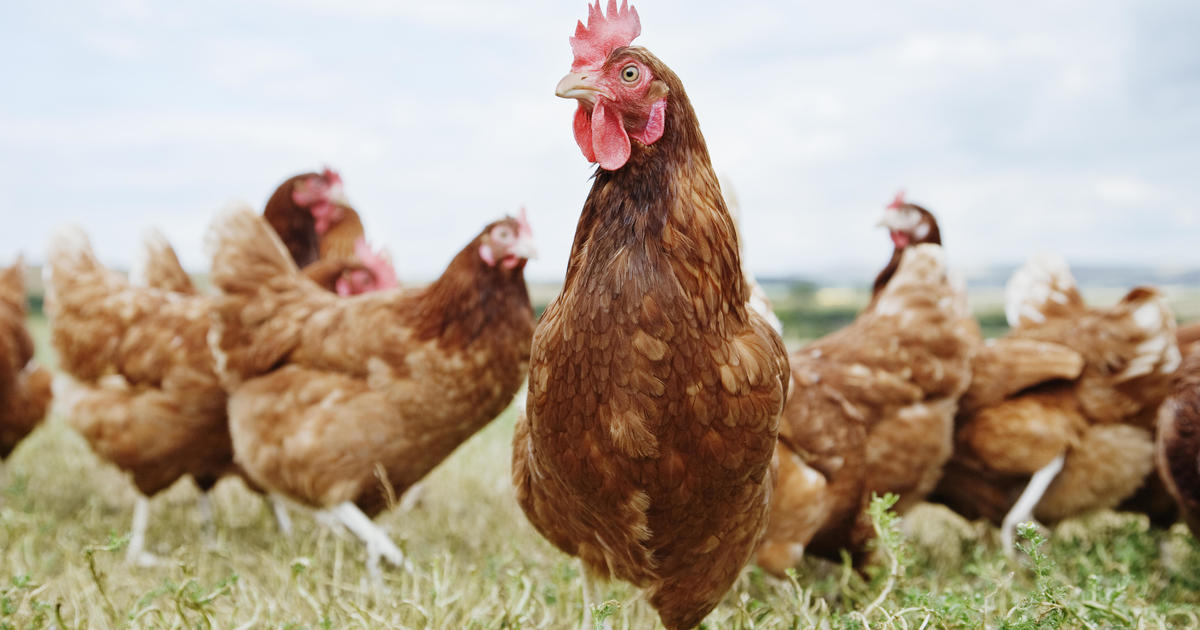Tainted Egg Farm Owners Have Date with Congress

The owners of two Iowa farms implicated in the massive, national egg recall will be called to testify before Congress in September.
The Food and Drug Administration said it has found positive samples of salmonella that link Wright County Egg and Hillandale Farms to the tainted supply that has forced the recall of over half a billion eggs and made as many as 1,500 people sick.
The two farms are independent but share close ties, including suppliers of chickens and feed.
A House Energy and Commerce subcommittee announced it will hold a hearing on the recalls Sept. 14 and intend to call Austin "Jack" DeCoster, the owner of Wright County Egg, and Orland Bethel, the owner of Hillandale Farms, to testify. It is not clear whether either of the men will actually appear.
The panel has also written the FDA, which oversees the safety of shell eggs, and the Agriculture Department, which oversees other egg products and animal disease. The committee asked for records of inspections and past communications with the two farms, along with other documents. The FDA has said it has "no inspectional history" with the two farms.
Rep. Rosa DeLauro, D-Conn., who heads the spending committee that oversees the FDA and USDA, has also written letters to the two agencies.
DeCoster - who has paid millions of dollars in fines over the last 20 years for health, safety, immigration and environmental violations and is considered a "habitual violator" in Iowa - is actually tied to both of the culpable farms. In addition to owning Wright County, another of his companies, Quality Egg, supplies young chickens and feed to both Wright County Egg and Hillandale Farms.
DeCoster is no stranger to controversy in his food and farm operations:
• In 1997, DeCoster Egg Farms agreed to pay $2 million in fines to settle citations brought in 1996 for health and safety violations at DeCoster's farm in Turner, Maine. Then-Labor Secretary Robert Reich said conditions were "as dangerous and oppressive as any sweatshop." He cited unguarded machinery, electrical hazards, exposure to harmful bacteria and other unsanitary conditions.
• In 2000, Iowa designated DeCoster a "habitual violator" of environmental regulations for problems that included hog manure runoff into waterways. The label made him subject to increased penalties and prohibited him from building new farms.
• In 2002, the federal Equal Employment Opportunity Commission announced a more than $1.5 million settlement of an employment discrimination lawsuit against DeCoster Farms on behalf of Mexican women who reported they were subjected to sexual harassment, including rape, abuse and retaliation by some supervisory workers at DeCoster's Wright County plants.
• In 2007, 51 workers were arrested during an immigration raid at six DeCoster egg farms. The farm had been the subject of at least three previous raids.
• In June 2010, Maine Contract Farming - the successor company to DeCoster Egg Farms - agreed in state court to pay $25,000 in penalties and to make a one-time payment of $100,000 to the Maine Department of Agriculture over animal cruelty allegations that were spurred by a hidden-camera investigation by an animal welfare organization.
Government officials acknowledged that Wright and Hillandale are still producing eggs that are being sent to pasteurizing plants where the FDA says they will be made safe for consumption in products such as mayonnaise, ice cream and cookie dough, CBS News Correspondent Dean Reynolds reports from Chicago.
The number of illnesses, which can be life-threatening, especially to those with weakened immune systems, is expected to increase. No deaths have been reported due to this outbreak.
CDC epidemiologist Dr. Christopher Braden said this is the largest outbreak of this strain of salmonella since the start of the agency's surveillance of outbreaks in the late 1970s. The next largest was an outbreak due to raw eggs in ice cream in the 1990s that caused more than 700 illnesses.
Thoroughly cooking eggs can kill the bacteria. But health officials are recommending people throw away or return the recalled eggs.
© MMX, CBS Interactive Inc. All Rights Reserved. This material may not be published, broadcast, rewritten, or redistributed. The Associated Press contributed to this report.



